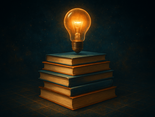top of page

Explorations in Science and AI


The AI Physicist reaches its first autonomy milestone (ahead of schedule)
The team at FirstPrinciples has reached the AI Physicist’s first autonomy milestone ahead of schedule, assembling the early loops of a system that will guide its own scientific reasoning from research to hypothesis and beyond.


The AI Physicist reaches its first autonomy milestone (ahead of schedule)
The team at FirstPrinciples has reached the AI Physicist’s first autonomy milestone ahead of schedule, assembling the early loops of a system that will guide its own scientific reasoning from research to hypothesis and beyond.

FirstPrinciples
Dec 9, 2025


Colin Hunter
Jul 29, 2025


Matt von Hippel
Jun 18, 2025


FirstPrinciples
Jun 11, 2025


FirstPrinciples
Jul 4, 2024


The AI Physicist reaches its first autonomy milestone (ahead of schedule)
The team at FirstPrinciples has reached the AI Physicist’s first autonomy milestone ahead of schedule, assembling the early loops of a system that will guide its own scientific reasoning from research to hypothesis and beyond.

FirstPrinciples
Latest Articles


Bridging minds and disciplines: The IAIFI Summer School and the future of collaborative science
At the intersection of artificial intelligence and fundamental physics, the NSF Institute for Artificial Intelligence and Fundamental Interactions (IAIFI) is preparing scientists to learn, think and understand at the deepest levels. In its latest week-long Summer School program, students explored frontier challenges through lectures, tutorials, and collaborative hackathons, testing how AI can shape the future of physics, and how physics can push the boundaries of AI.

FirstPrinciples
Aug 15, 2025


Where quantum breakthroughs begin: Inside Columbia University’s culture of collaboration
At Columbia University, quantum breakthroughs emerge from a culture of shared labs, ideas, and materials. What began as informal collaboration has become a scalable model for cross-disciplinary science that powers advances in programmable quantum systems.

Lucila Pinto
Aug 13, 2025


New AI models and the benchmark paradox
Z.ai's new open-source model and Harmonic's math-native chatbot highlight contrasting strategies for AI reasoning, while a new wave of increasingly specialized benchmarks invites us to rethink how we measure progress.

FirstPrinciples
Aug 7, 2025


AI enters the scientific loop: Simulation, integrity, and the rise of open reasoning
From prompt injection to physics simulators and open reasoning models, recent news shows that AI isn’t just accelerating science, it’s reshaping how it works. The question now, is will it deepen inquiry, or erode the principles on which credibility in science is built?

FirstPrinciples
Jul 30, 2025


Inside the global race to build the quantum internet
A new kind of network is emerging. One that could enable ultra-secure communication, safeguarded by the laws of physics. As the race to build a quantum internet accelerates, nations are vying for digital sovereignty and want to be the first to build the unbreakable internet.
Colin Hunter
Jul 29, 2025


Sabine Hossenfelder on AI, bad physics, and why science needs reform
She’s one of the internet’s sharpest scientific voices: equal parts physicist, critic, and communicator. In this candid conversation, Sabine Hossenfelder reflects on AI, the flood of low-impact theory papers, and how a scientific culture ripe for reform could finally be ready for change.
Colin Hunter
Jul 22, 2025


Peer review in the age of AI: When scientific judgement meets prompt injection
Hidden prompts buried in preprints show how easily large language models (LLMs) can be manipulated, exposing a deep vulnerability in science’s quality-control system. As artificial intelligence (AI) becomes part of the scientific review process, traceability and transparency must become new norms, not afterthoughts.

FirstPrinciples
Jul 16, 2025


Inside the Flatiron Institute: Where algorithms and inquiry shape modern science
The Flatiron Institute stands out for its bold model: full-time scientists, open-source tools, and a mission to accelerate discovery through computation. Its success across fields—from astrophysics to neuroscience—reflects the power of that approach.

Charles Q. Choi
Jul 15, 2025


AI faces a tough physics exam: New benchmark reveals the challenge
Large language models have advanced dramatically in recent years, yet when physicists gave them an undergraduate-level test, even the best models were only correct on around one out of every three questions. The new PhysUniBench benchmark exposes how far AI still has to go in mastering fundamental science.

FirstPrinciples
Jul 9, 2025
Become a contributor for the Hub
Share your thought-provoking content with our community of curious minds.

bottom of page














